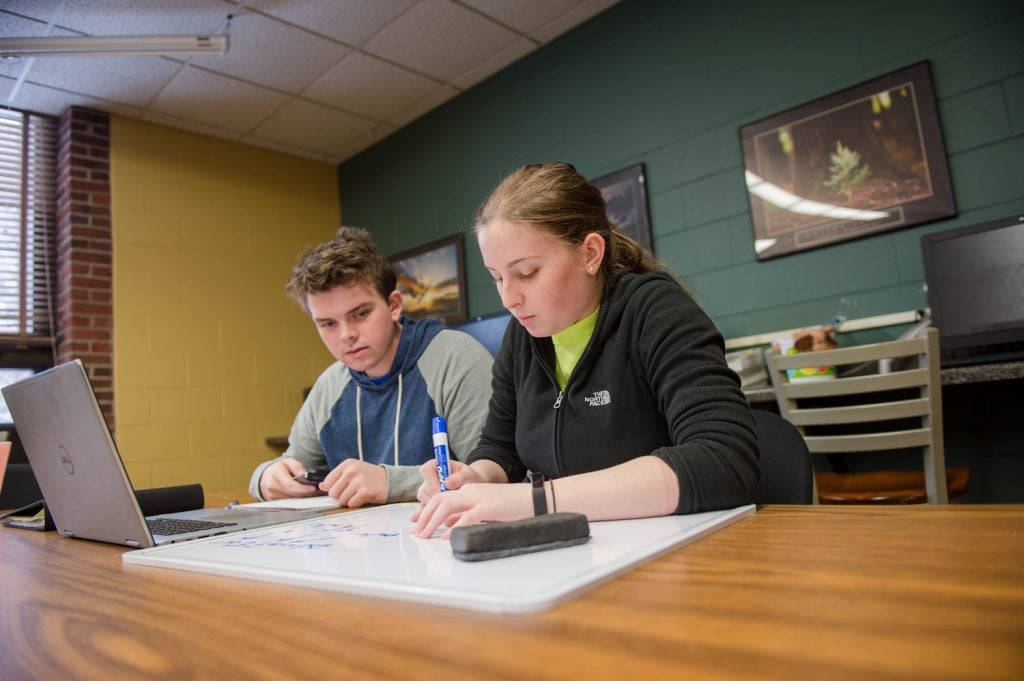 On a cold winter’s day in 2003, Lois Blau (whom most will remember as the dynamic director of the Chemistry Learning Center (CLC)) discovered a relatively new and innovative academic support service that would transform the landscape of STEM learning support at Michigan Tech in the months and years to come. The program? Supplemental Instruction (SI for short).
On a cold winter’s day in 2003, Lois Blau (whom most will remember as the dynamic director of the Chemistry Learning Center (CLC)) discovered a relatively new and innovative academic support service that would transform the landscape of STEM learning support at Michigan Tech in the months and years to come. The program? Supplemental Instruction (SI for short).
SI is a nontraditional form of tutoring that focuses on collaboration, group study, and interaction for students taking “traditionally difficult” courses. Students are provided a trained peer who has successfully negotiated the course. In 50-minute sessions, students receive course-specific learning and study strategies, note-taking and test-taking skills, and structured study time. SI was first deployed at Tech in general chemistry in fall 2004. After attending formal training in Kansas City, Lois was convinced that the program could make a positive impact on campus. The outcome surpassed her expectations. What started as a support service for one introductory course has blossomed into a sophisticated operation in five foundational first-year and second-year courses.
In fall 2018, the CLC experienced record-breaking attendance with nearly 6,000 student visits throughout the semester. The praise belongs to our amazing team of student SI leaders who worked so hard to help our students succeed. SI leaders go through a relatively involved training process before the start of the academic year and attend development sessions throughout the year. In addition, they faithfully attend every course lecture, take notes right alongside the students, and act as model peers. All this puts SI leaders in the best position to run effective sessions.
What makes SI so successful? The harmonious relationship between teaching and talking. To talk is to teach and to teach is to learn. Since talking requires prerequisite thinking on a critical level, she who talks more learns more.
Is SI working? Yes! We consistently see that students who attend SI are scoring 10 percent above their non-attending counterparts on average. For certain classes, the difference has been as high as 15 percent. One might surmise that the difference in achievement level is more of a correlation effect. It turns out, however, that the International Center for SI in Kansas City has ample data to show that this is not the case. When sorting students by any number of metrics the data show that SI is having a causation effect in the improved student outcomes.
We have room to grow. Eventually we would love to test out SI in P-Chem (typically taken in the third year). In addition to growing the program within the department, Jeremy Brown, director of the CLC, plans to extoll the program’s virtues across campus. Michigan Tech is already regarded as a top-notch university, but an active and flourishing SI program could have a propitious effect in aiding our students to learn, thrive, and create the future.